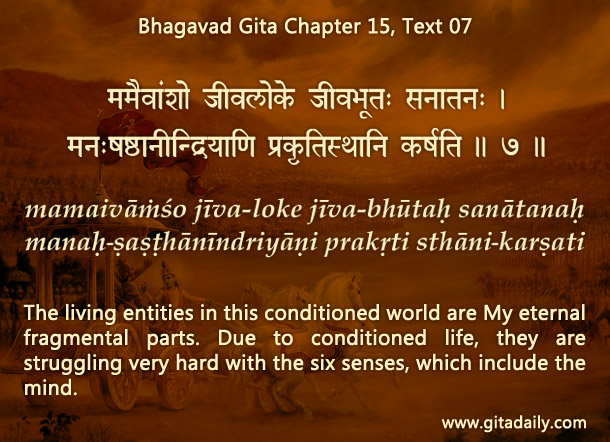The equality of all people is enshrined as a sacred modern value. This contrasts with medieval societies where hierarchies were often rigid and upward mobility was almost impossible.
While the premise of equality makes upward mobility seem possible, the reality of disparity makes such mobility seem difficult, even impossible. Nowadays, inequality is accentuated by the increased interconnectedness of society whereby people living in poverty can see others living in prosperity and can feel the glaring disparity. This disparity can incite craving which if unfulfilled can trigger enormous envy in people’s hearts. When people become envious, even if they agitate for social change, they become motivated not so much by concern for the deprived as envy toward the privileged. This volatile mix of equality seeming both attainable and unattainable can breed a virulent and violent reaction.
To prevent such a reaction, Gita wisdom explains that the promise of equality has to be grounded in spiritual self-understanding. The Bhagavad-gita states that we are all souls who are equally parts of the Divine (15.07). In our aspiration for finding love and fulfillment, we all have equal spiritual potential. Ultimately, our happiness rests not merely on improving our socio-economic situations, but on realizing the reality of who we are spiritually.
Thus, by learning to grow spiritually and finding inner contentment, we can realize that the outer things that are different among different people don’t ultimately make a huge difference — they don’t define who we are or determine our capacity to create a fulfilling life. Thereby, we can transcend any envy that might be triggered by material disparity. Simultaneously, being firmly grounded spiritually, we can work individually and collectively according to our capacities to correct social disparities.
One-sentence summary:
For the promise of equality to not become the pathway to envy, we need to perceive and pursue spiritual equality.
Think it over:
- How are modern and pre-modern societies different with regards to equality?
- When can the longing for equality lead to envy? How?
- How can we transcend envy?
To know more about this verse, please click on the image


This is very nicely explained my husband also has this notion that no body likes him in his work place and is always under fear but instead of doubting his capability he should think rightly he should have this knowledge rather where society is moving.